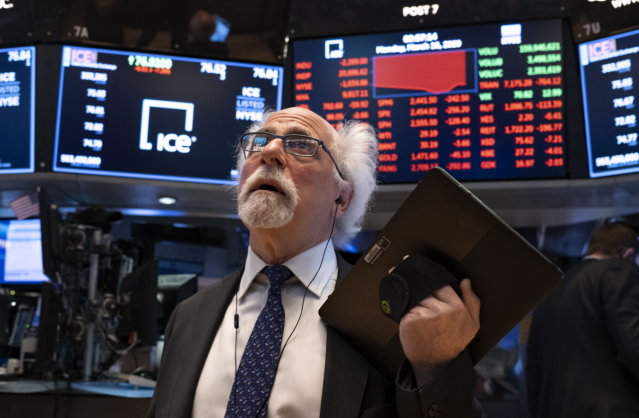
For nearly a year, the United States experienced high inflation and aggressive interest rate hikes, but the economy did not recession, exceeding market expectations. Since the second quarter of this year, the United States real estate has recovered more than expected, and durable goods orders have risen for three months. In the first half of the year, all three major U.S. stock indexes recorded gains, and the Nasdaq Composite index rose nearly 40% in the first seven months, the largest increase in the world's major stock indexes.
The reason why the US economy is performing well, its resilience mainly comes from six aspects:
First, US household and corporate sector balance sheets are healthy. From the second quarter data, the US economy grew mainly from business investment (3.3%), government spending (3.3%) and personal consumption (1.7%), with net exports as a drag (-10.6%). Despite high interest rates, business investment and personal consumption expenditure have been able to maintain growth, mainly due to the healthy balance sheet of private sector assets such as households and businesses.

Second, the overall performance of the US financial system is sound. Although in the first half of 2023, the United States experienced small and medium-sized bank crises such as the bankruptcy of Silicon Valley Bank and First Bank, the entire banking system is still sound, especially the overall health of systemically important banks, and there is no systemic financial risk. This is mainly due to the ongoing deleveraging and heavy regulation of the entire banking system (Dodd-Frank Act) following the 2008 subprime mortgage crisis. The US banking system is much better off than it was in 2008, both in terms of capital adequacy and non-performing loan ratios.
Third, there is no obvious risk of a bubble in the US housing market. From the point of view of house prices, although the nominal house prices in the United States have broken through the pre-subprime crisis high, but considering that other prices are also rising, as well as the growth of residents' incomes, the actual price of the real estate market is not high. On the other hand, from the perspective of the housing vacancy rate in the United States, the vacancy rate of houses for sale in the second quarter of 2023 in the United States is 6.3%, and the vacancy rate of rental houses is 0.7%, which is far lower than the highest level before the subprime crisis, especially the current vacancy rate of rental houses is at a historic low.
Fourth, the restructuring of the US global industrial chain has achieved initial results. The Biden administration passed the "Inflation Reduction Act" and the "Chip and Science Act" last year, the purpose of which is to restructure the global industrial chain, hoping to rebuild the global competitiveness of the U.S. manufacturing industry through re-industrialization. At present, the effect of its industrial policy stimulus has begun to show.
Fifth, the function of the dollar as a safe haven currency has not changed. During the global pandemic in 2020, funds flowed back into US dollar assets based on safe-haven demand, pushing up the US dollar index. In 2022, as the Federal Reserve continues to raise interest rates, the dollar is once again the strongest performing currency in the world, which is still driven by the return of funds to dollar assets. As a result, although the Federal Reserve has embarked on the most rapid and aggressive rate hike in nearly four decades, the tightening effect of monetary policy is not obvious, and according to the Chicago Fed's adjusted National Financial Conditions Index, current financial conditions in the United States are still relatively loose compared with historical averages.

Sixth, the United States has obvious advantages in scientific and technological competitiveness. The main reason for the surge in US technology stocks this year is that a new round of scientific and technological revolution represented by AIGC (generative artificial intelligence) has entered the air, and American companies are once again on the cusp. Nvidia, which has a near-monopoly on the global supply of artificial intelligence computing chips, has seen its shares rise more than 200% this year. Currently, the United States leads the world in most indicators in the field of artificial intelligence.
It is for these six reasons that the US economy has shown great resilience. It is expected that the probability of a deep recession in the current cycle of the US economy is less, and the probability of a soft landing in the economy is rising. If there is downward pressure on the economy next year, the Fed will start cutting interest rates to guard against the risk of a "hard landing" for the economy.
Even a "soft landing" for the U.S. economy does not mean a quick recovery. On the one hand, US inflation will remain high for some time. Even if the Federal Reserve no longer raises interest rates, it is unlikely to cut interest rates soon, and high interest rates will remain for a long time, leading to continued pressure on interest rate sensitive industries, which will drag down economic growth. On the other hand, high interest rates will still affect the stability of small and medium-sized banks in the United States. In the case of rising debt costs, the deposit outflow of the US banking industry continues to continue, while its asset side still has a large "float loss" as the interest rate of Treasury bonds rises. We do not rule out the possibility of another small and medium-sized bank failure crisis in the United States, when the turmoil in financial markets may cause credit to tighten again.

On January 7th local time, GameStop (GME.US) announced that the company's board of directors had approved a potential executive compensation package worth $3.54 billion, which was targeted at the company's CEO, Ryan Cohen. At the same time, this new compensation package set extremely high performance thresholds: Cohen, the CEO, needed to increase the company's market capitalization from $9.5 billion to $100 billion.
On January 7th local time, GameStop (GME.US) announced that…
According to the British media The Guardian, recently US Pr…
In today's era of deep integration of globalization and dig…
In early 2026, US President Trump forcibly took control of …
Recently, the corn market dynamics analysis released by Aus…
Donald Trump has proposed an "immediate" restriction on lar…